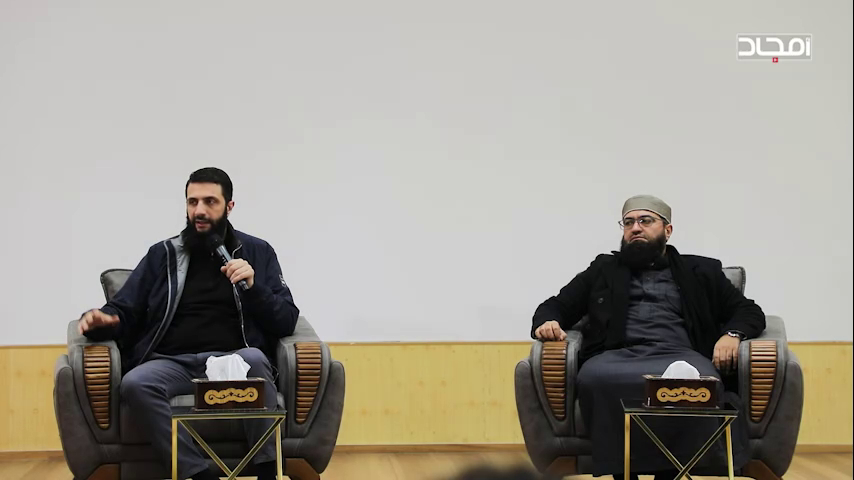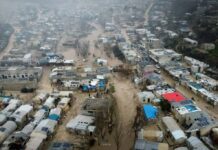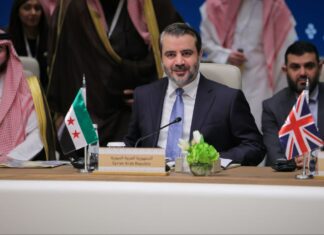
Abu Muhammad al-Jolani, the Syrian Salvation Government (SSG), the reconciliation committee, and notables in the liberated territories recently convened to address the findings of the Special Investigative Committee regarding a months-long case involving spies and corruption within the security forces and government. The meeting, as captured in a video released by Amjad Media, shed light on the complexities and challenges faced during the investigation and emphasized the commitment to justice and transparency.
Sheikh Mazher al-Uweys opened the meeting with a prayer and expressed gratitude for the liberated areas being saved from the crisis, emphasizing the need for unity and determination in their journey. He thanked Allah for the innocence of the accused and praised al-Jolani for his dedication to seeking the truth. Al-Uweys acknowledged the mistakes made in the investigation, highlighting the importance of transparency and accountability.
Al-Jolani stated that errors happened during the inquiry, resulting in false allegations and forced confessions under extreme pressure. He emphasized that the liberated territories and their institutions remained strong and that the case’s revelation demonstrated their strength. He also suggested the formation of a judicial commission to examine the problems of those wrongfully accused, emphasizing the importance of restoring their rights.
The speech acknowledged numerous crucial components of the judiciary review, including the recognition of the innocence of specific individuals accused during the investigation, which would be handled by the establishment of an investigative committee to study and address crisis-related concerns.
Al-Jolani stated, “We have constituted a judicial committee to support these brothers and ensure that their petitions are heard. Some of the perpetrators of these horrible crimes (detainee mistreatment and forced confessions) have been arrested.”
The primary issues to be addressed were accountability and acceptance of faults, as well as transparency in topics, particularly regarding leadership, even during difficult times.
“We will work on many additional procedures to improve the performance and the quality of oversight of the security and police agencies, and the intervention of the judiciary in the security work, and review of the investigative systems, so that we can attain the utmost level of freedom, and preserve the dignity of prisoners and their position.”
Al-Jolani accepted mistakes in security processes, including the use of “forced pressure” during interrogations, and stated that the authorities are still dedicated to restoring the rights of those affected by the false allegations. Despite the past blunders and missteps, al-Jolani remarked that they play an important role in keeping order and averting turmoil in the liberated areas. Furthermore, despite the likelihood of mistakes, they must be determined to learn from them and constantly grow.
Recognizing the grief caused by the occurrence, al-Jolani emphasized his commitment to transparency and the acceptance of faults as a method of correcting them. He stressed the significance of maintaining security services while also recognizing the need to identify and remedy any errors within the institutions.








